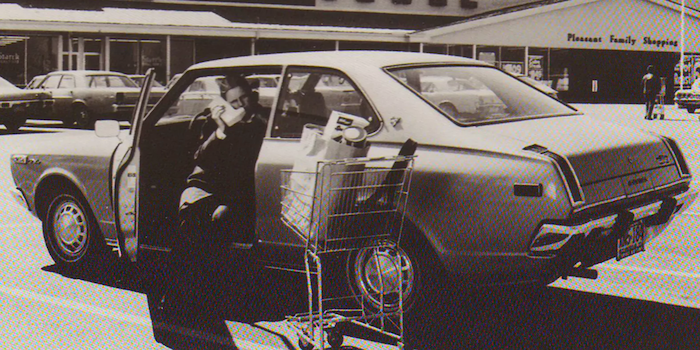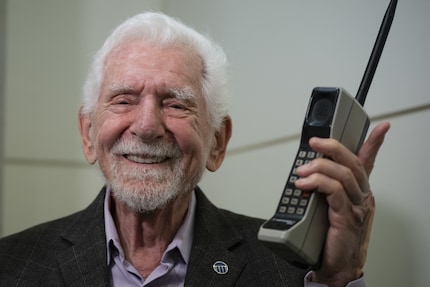
50 years of mobile phones: "If you don't answer the phone, you die"
Exactly 50 years ago, the first call was made from a mobile phone. The nasty thing about this call was that it was provocatively routed from a Motorola bone to an AT&T cable phone.
The date is 3 April 1973 and Martin Cooper is standing on a pavement in the middle of Manhattan. He is using a brick-shaped device to make the first public call from a mobile phone. The man on the other end of the line had been struggling with him to develop such a device until then.
As an employee of Motorola, Cooper addressed the first words to Joel Engel from rival company AT&T as follows: "I'm calling you on a mobile phone, but a real mobile phone, a personal, portable mobile phone."
Joel Engel was completely speechless at first. Today, according to Cooper, he doesn't even remember the call, which you can't blame him for.
"It didn't surprise me that suddenly everyone had a mobile," says the now 94-year-old Cooper to CNN 50 years later. "We told the story back then that one day, when you were born, you'd get a phone number. If you don't answer the phone, you die."

Source: Keystone
Months before Cooper's call, Motorola was already in a race to develop a mobile phone with Bell Labs, the research division of AT&T that had already developed the transistor and other innovations. Cooper remembers that his competitor was not quite as enthusiastic about the call as he was. "They were the biggest company in the world, and we were a small company in Chicago," recalls Cooper. "They just didn't think we were very important."
However, it was another ten years before mobile phones were available to the masses. And since then, the bulky devices have developed rapidly. They became thinner, smaller and faster. Even then, Cooper was aware that a mobile phone would one day become indispensable for the majority of people. He told the French news agency AFP: "The mobile phone has become an extension of the person, but it can do so much more. We are only just beginning to understand these possibilities."
It was not until the 1990s that the modern mobile phone really caught on. It was only then that it became much smaller and more user-friendly. Martin Cooper, who has since promoted the technology, lectured and made media appearances, does not welcome every aspect of modern technological progress: "Too many engineers are engrossed in what they call technology and the gimmicks, the hardware, and they forget that the whole purpose of technology is to improve people's lives."
However, he is mainly concerned with the development of mobile phones. Mostly, however, he agrees with the development of the mobile phone. He is optimistic and sees the progress of technology as positive for society.
Cover photo: Motorola ArchiveIn my world, Super Mario chases Stormtroopers with a unicorn and Harley Quinn mixes cocktails for Eddie and Peter at the beach bar. Wherever I can live out my creativity, my fingers tingle. Or maybe it's because nothing flows through my veins but chocolate, glitter and coffee.